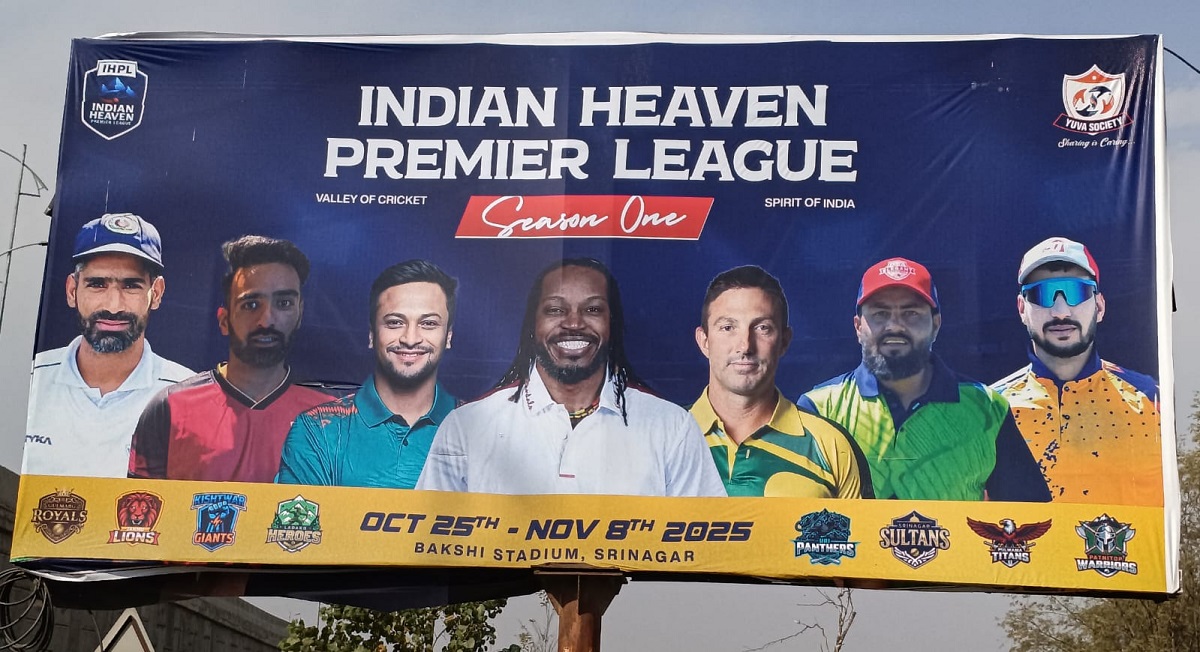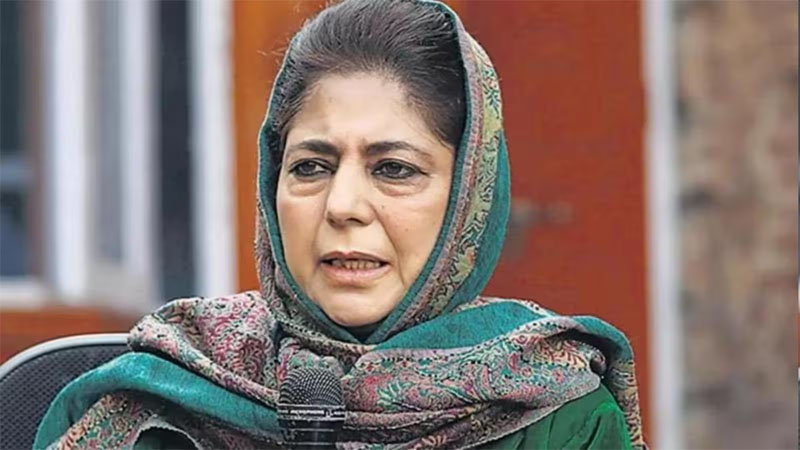PDP welcomed Chief Minister Omar Abdullah’s push for statehood but criticized it as “selective focus” that ignores the deeper constitutional injury caused by the abrogation of Article 370 and 35A
By: Javid Amin | Srinagar | 06 Aug 2025
The debate over Jammu and Kashmir’s constitutional status has reignited with full force as the People’s Democratic Party (PDP) launched a fresh, forceful campaign demanding the restoration of Articles 370 and 35A. This development comes amid increasing political mobilization in the region, particularly after J&K Chief Minister Omar Abdullah’s call for the restoration of statehood. However, the PDP contends that a return to statehood alone is inadequate and fails to address the foundational issues of identity, autonomy, and constitutional justice.
PDP’s Position: ‘Statehood Alone Is Not Enough’
The PDP, led by former Chief Minister Mehbooba Mufti, has responded to the recent statehood push with what it calls a necessary “constitutional correction.” According to the PDP, focusing solely on statehood while sidelining the revocation of Articles 370 and 35A is a selective and incomplete remedy.
Statement from Mehboob Beg
Dr. Mehboob Beg, the PDP’s Chief Spokesperson, said:
“Statehood is only a fraction of what we’ve lost. Our demand is not rooted in political expediency but in constitutional morality. Articles 370 and 35A were the bedrock of our identity, and their restoration is the only acceptable path forward.”
The party insists that the abrogation of these constitutional provisions on August 5, 2019, was not only illegal and unilateral but also carried out without the consent of J&K’s people. According to the PDP, the move undermined the democratic fabric of the region.
Legislative Push: Resolution in J&K Assembly
In a bold parliamentary move, PDP, in coordination with the Jammu and Kashmir Peoples Conference (JKPC) and Awami Ittehad Party (AIP), submitted a joint resolution to the J&K Assembly. The document strongly condemns the Centre’s action in August 2019 as unconstitutional.
Key Demands in the Resolution
- Immediate restoration of Articles 370 and 35A in their original form
- Reversal of all changes made under the Jammu and Kashmir Reorganisation Act, 2019
- Reinstatement of J&K’s special status to protect its identity and legislative autonomy
The resolution has been seen as a coordinated effort to present a legal and political challenge from within the democratic space, leveraging legislative instruments rather than just street protests or symbolic gestures.
Political Undercurrents: A Divided Regional Front
While Omar Abdullah and his National Conference (NC) continue to campaign for the restoration of statehood, PDP is carving a different path. The party has accused NC of playing into the hands of the BJP-led Centre by narrowing the discourse to administrative status alone.
PDP leaders argue that reducing the debate to statehood risks legitimizing the events of August 5, 2019, by accepting the new constitutional order without challenge.
Mehbooba Mufti’s View
Mehbooba Mufti, speaking at a party convention in South Kashmir, stated:
“We cannot betray the sacrifices of our people by settling for statehood. This is not a time for compromise; it’s a time for constitutional correction.”
This political divergence has created a sharper ideological distinction between the PDP and NC, with PDP accusing NC of retreating from its earlier stance on Article 370.
Call for a United Political Front
PDP has also called for a broader coalition of regional and national parties committed to full constitutional restoration. The party believes that a united front is essential to pressurize the Centre and create international awareness.
“It’s time we stop fighting in silos. Statehood without Article 370 is a body without a soul,” Mehboob Beg emphasized.
This coalition-building effort is still in its early stages, but there are signs that discontent across party lines may yet produce a common minimum agenda.
Legal and Constitutional Considerations
Legal experts within PDP argue that the abrogation of Article 370 bypassed due process. The Jammu & Kashmir Constitution and the Instrument of Accession provided legal guarantees that, they contend, were brushed aside without the consent of J&K’s Constituent Assembly, which ceased to exist in 1957.
PDP leaders are also pinning hopes on pending legal petitions and upcoming court hearings, including one scheduled for August 8 in the Supreme Court, which may reignite debate over the legality and permanence of the abrogation.
What’s Next: Strategic Vision or Political Gamble?
PDP’s renewed push for Articles 370 and 35A can be seen both as a principled stand and a strategic gamble. It resonates deeply with a significant segment of the population still emotionally and politically invested in J&K’s special status. But the road ahead is steep, given the current political and judicial landscape heavily tilted in favour of the status quo.
Potential Scenarios
- Supreme Court issues a broader interpretation or reconsideration of Article 370’s abrogation.
- A political alliance of regional and national parties emerges to push constitutional restoration.
- International diplomatic pressure subtly alters the Centre’s rigid stance.
Bottom-Line: Identity, Autonomy, and a Constitutional Reckoning
The People’s Democratic Party’s forceful campaign is a reminder that the debate in Jammu and Kashmir is far from settled. For PDP, this is not just a political issue but a civilizational and constitutional one. Statehood, in their view, may bring back administrative powers—but without Articles 370 and 35A, the soul of Jammu & Kashmir, as they define it, remains fractured.
Whether this ideological and legislative push gains national traction or fades into symbolic opposition depends on how unified the political front becomes and how the courts interpret constitutional accountability.



